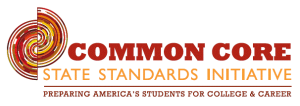The blog lives! Though there are two more weeks of school and I have lots to do, I’m riled up and eager to write. Yes, it’s another New York Times Op-Ed that has agitated me. A pair of non-teachers, Andrew Hacker and Claudia Dreifus, address some of the pitfalls of the implementation of the Common Core.
One of my frequent critiques about education journalism is that the authors almost always are not teachers. In this case, it’s not entirely fair to say the authors aren’t teachers–they are or were college professors–but they are not, and never have been, public school teachers. In writing about the Common Core and its associated tests, they question its benefits:
Will national, ramped-up standards produce more successful students? Or will they result in unintended consequences for our educational system?
Though they cast doubt on the promise of the Common Core, they are far removed, aloof even, from the effects of it. The unintended consequences aren’t going to hurt them. These “unintended” consequences are going to hurt us, the teachers, and the students we see every day. It is true, there will be consequences for the system, but the bulk of the unintended (read: detrimental) consequences are headed right for the most vulnerable students. They are the ones without educated family members to help them with homework, the ones with eleven siblings, the ones who speak a language other than English at home, the ones who can’t afford tutoring, or glasses, or therapist visits.
Why will the consequences be the most severe and apparent for these students? Because they attend schools in transition, schools with young or inexperienced administrators, schools with high teacher dissatisfaction and turnover, schools with too many other high-needs students, schools with inefficient bureaucracies.
Hacker and Dreifus also address the issue of teacher evaluation and accountability, but they don’t discuss why teacher evaluations based on test scores are problematic. Most people understand that while a teacher can have an enormous impact on a student’s learning, that student’s learning and the teacher’s teaching is not necessarily represented accurately in test scores–whether it’s growth in an individual student’s scores or aggregated comparisons of student performance by teacher. On a given day, a student can be ill, upset, agitated, hungry. We all understand minor aberrations and outliers. The problem is also not one of accountability. I have no issue being held accountable for what I do in the classroom on a daily basis.
Rather, the problem is two-fold: standardized tests measure many things over which I have little to no control, and evaluations ignore the “backstage” work of being a teacher. That’s the work of always trying to learn a new app or program, re-arranging the classroom to support student needs, completing paperwork for students with IEPs and 504 Plans, emailing and calling parents, creating bulletin boards, assigning grades, rationalizing grades, doling out comments, seeking creative ideas on Twitter, following education news, grading (seemingly) incessantly, updating Dropbox regularly with new and improved materials, collaborating with colleagues, educating students about the non-cognitive skills that will have more effect on their success than their test scores, and teaching with genuine enthusiasm and passion. Measure that, please.
And even if we were able to quantify a single teacher’s impact over the course of a school year, would that be adequate? What about all the ways that a teacher’s effects persist over time? My students may not be able to analyze an allegory this year, but because they know what one is this year, they may be able to analyze one next year. Consider all the non-cognitive skills that we teach, too — effort, curiosity, optimism, integrity, resilience. Some of these might not become manifest for years. Effective teaching, a vague and undefinable term, can’t be measured with a single test, or even in a single year.
Until the testing craze stops, schools are going to be more concerned with PR than with learning. Scores elide nuance and hide the truth. Tests teach students that scores matter more than work ethic, passion, or collaboration. What do we really want to teach our children?
